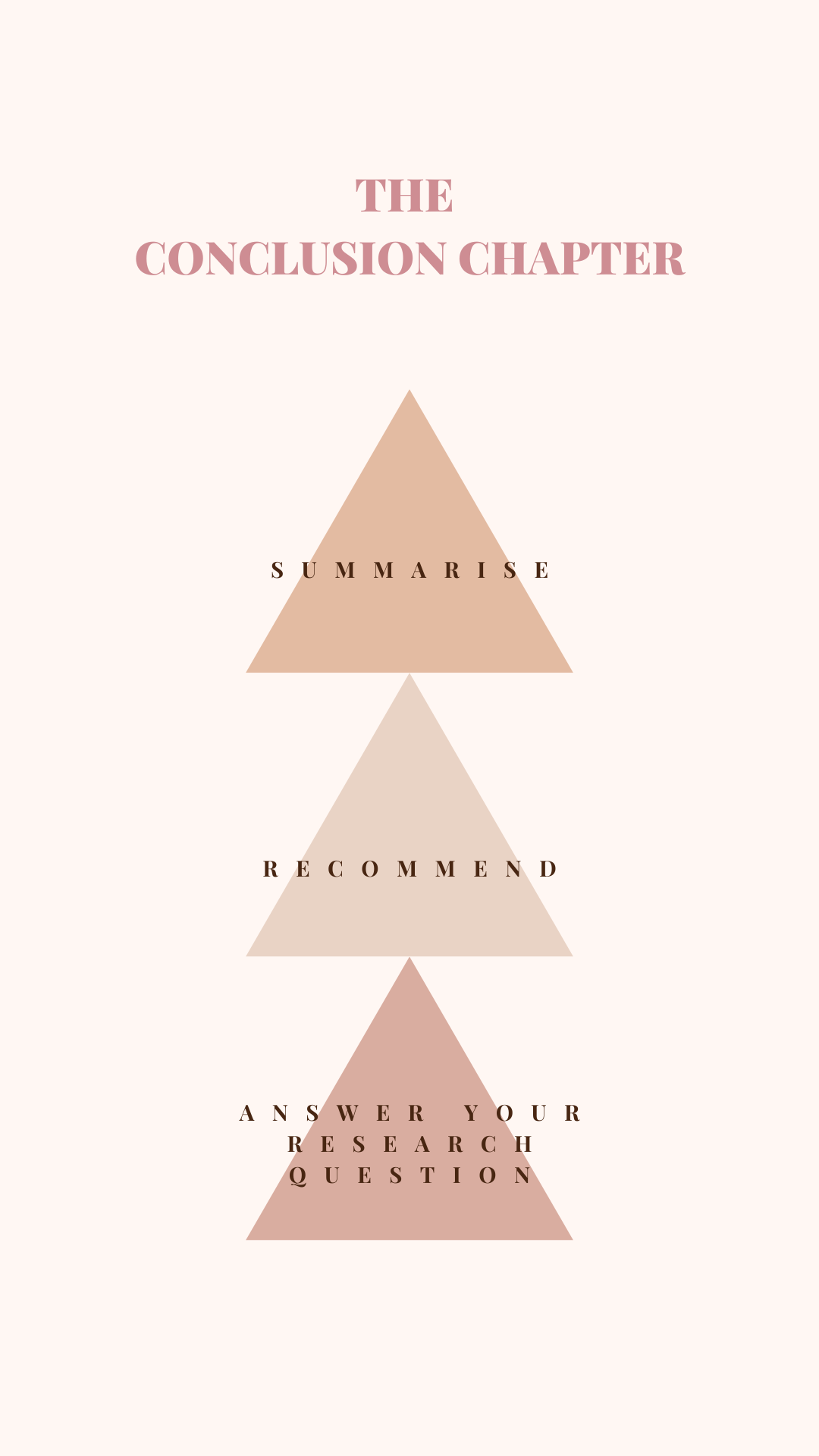The conclusion chapter of your dissertation is your final opportunity to leave a lasting impression on your readers. It brings together the various threads of your research and provides a concise summary of your findings, their implications, and the contribution your study makes to the field. For many students, the conclusion can be difficult because it requires summarising a vast amount of work in a succinct and meaningful way. In this post, we’ll explore the essential components of the conclusion chapter, common pitfalls to avoid, and how academic coaching can help you craft an effective conclusion.
Understanding the Purpose of the Conclusion Chapter
The conclusion chapter is where you wrap up your dissertation by summarising your research findings, reflecting on their significance, and highlighting how they contribute to the broader field of study. It’s the final section of your dissertation where you address the key research questions and provide recommendations for future research or practice.
Key elements to include in the conclusion chapter:
– Summary of Key Findings: Provide a brief recap of your main research findings and how they answer your research questions or hypotheses.
– Implications of Your Findings: Discuss the broader significance of your findings, particularly in relation to theory, practice, or policy.
– Contributions to the Field: Explain how your research has advanced knowledge in your area of study and its relevance to future research.
– Recommendations for Future Research: Suggest areas where further research is needed based on your findings and the limitations of your study.
– Final Thoughts: End your dissertation on a strong note by summarising your research journey and its potential impact.

Common Pitfalls to Avoid
1. Repetition: One of the most common mistakes in the conclusion is simply repeating what you’ve already written in previous chapters. The conclusion should synthesise your findings, not rehash them verbatim. Avoid summarising your entire dissertation in too much detail; instead, focus on the key points that address your research questions.
2. Introducing New Information: The conclusion is not the place to introduce new arguments, data, or references. Everything mentioned in the conclusion should have been covered in earlier chapters. Bringing in new information can confuse readers and undermine the structure of your dissertation.
3. Being Too Vague: It’s important to avoid general statements or vague summaries in your conclusion. Be specific about what your findings are and how they contribute to your field. A strong conclusion is clear, direct, and substantiates the claims made throughout your dissertation.
4. Ignoring the Limitations: A good conclusion acknowledges the limitations of the study, particularly in terms of scope, methodology, or generalisability. Failing to do so can give the impression that you have not critically engaged with your work or the context in which your research was conducted.
How to Write the Conclusion Chapter
– Start by Restating Your Research Aim or Objectives: Begin your conclusion by briefly restating the main aim or objectives of your research. This sets the stage for summarising the key findings that follow.
– Summarise the Key Findings: Provide a succinct summary of your research findings. You don’t need to go into the same level of detail as in the results or discussion chapters; instead, focus on the most important points that answer your research questions.
– Discuss the Implications of Your Findings: What do your findings mean for your field? Discuss how they contribute to theory, practice, or policy. Are there any unexpected findings that could challenge existing knowledge? This section is your opportunity to highlight the value of your research.
– Highlight Contributions to the Field: Emphasise how your study advances knowledge in your discipline. How does it fill a gap in the literature? What new insights does it provide? This section should make clear why your research is important.
– Acknowledge the Limitations: It’s important to be honest about the limitations of your study. Discuss any factors that may have affected the results or the interpretation of your findings. Acknowledging limitations demonstrates critical thinking and shows that you’ve considered the context of your research.
– Provide Recommendations for Future Research: Suggest areas for future research based on your findings and the limitations of your study. What unanswered questions remain? Where can future researchers build on your work?
How Academic Coaching Can Help You Write a Strong Conclusion Chapter
Writing a conclusion chapter can be tricky, as it requires you to summarise a complex body of work in a way that is concise, clear, and impactful. Many students find it challenging to strike the right balance between summarising their research and discussing its broader implications. This is where academic coaching can help.
A coach can:
– Help you structure your conclusion logically and clearly.
– Ensure that your conclusion synthesises the main points without simply repeating your previous chapters.
– Guide you in articulating the significance of your findings and their contribution to the field.
– Help you critically reflect on the limitations of your study and suggest areas for future research.
– Provide feedback and support throughout the writing process, ensuring that your conclusion is strong and coherent.
Conclusion
The conclusion chapter is your final opportunity to demonstrate the significance of your research. It’s where you summarise your key findings, discuss their implications, and highlight your study’s contribution to the field. Writing a strong conclusion can be difficult, but with the right support, you can ensure that your dissertation ends on a powerful note. If you’re struggling with your conclusion or need help refining your ideas, academic coaching can provide the guidance and feedback you need to craft a compelling conclusion that ties everything together.
Ready to finish your dissertation with confidence? Get in touch and book a session to receive personalised support on writing your conclusion chapter.